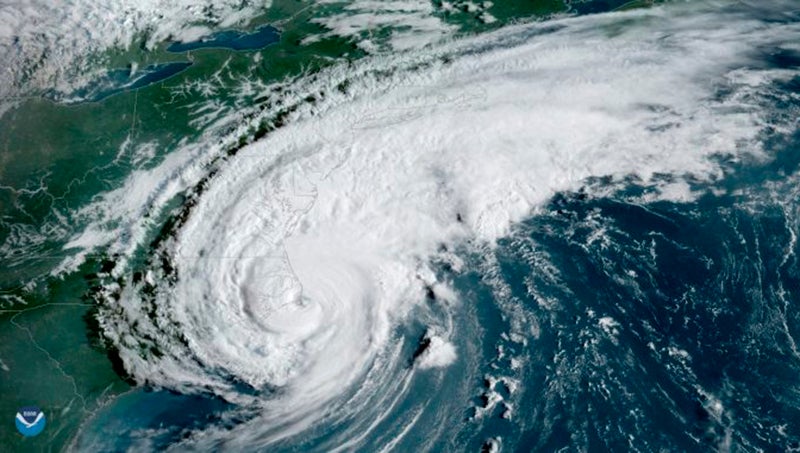Prepare now for hurricane season
Published 6:28 pm Tuesday, May 12, 2020

- Hurricane Dorian (above) made landfall at Cape Hatteras on Sept. 6, 2019, as a Category 1 hurricane, with 1-minute sustained winds of 90 mph. (NOAA image)
|
Getting your Trinity Audio player ready...
|
Like we don’t have enough to think about — this week’s reminder is that hurricane season opens June 1 and runs through Nov. 30 each year.
Well, when it comes to boating: “Forget about it.” There are two types of hurricane alerts. A hurricane watch means a hurricane is possible in your area. Be prepared to evacuate. Monitor local radio and television for news, or listen to NOAA Weather Radio. A hurricane warning means a hurricane is on its way to your area. Be prepared to evacuate immediately, if told to do so by authorities.
There are five hurricane categories based on their ability to cause damage. Preparing for a hurricane or any other type of disaster requires preparation beforehand. There are three important steps you should complete in preparation for a hurricane: make a plan; be informed; and get a kit.
Make A Plan
All emergency medical supplies should be contained a backpack so you can take them in case of evacuation. Cover home windows with plywood or hurricane shutters, if necessary. Bring inside all of your furniture, decorations, garbage cans or anything else not tied down, so these items do not become projectiles in strong wind. Trim trees and shrubs on a regular basis; this will make them more resistant to the wind. If your home has shutters, close them. If your utilities can remain on, turn the refrigerator thermostat to its coldest setting and keep its door closed. This will help preserve food should there be a power failure. Turn off propane tank.
Be Informed
One of the best places to get information is the National Weather Service at www.weather.gov/wrn/hurricane-preparedness. Keep up with local emergency services through social media and sign up for the county’s Hyper-Reach program for real-time information from authorities. Visit the county website at co.beaufort.nc.us and scroll down to the red Hyper-Reach link to sign up and get notifications via text, phone call or email.
Get a Kit
A “go bag” can make all the difference in an emergency. Include basic electronics: extra phone charger, portable battery pack, long-lasting LED flashlight, small hand-cranked or battery operated AM/FM radio. Pack up eyeglasses, first aid kit, baby wipes, a multipurpose tool with knife and can opener; pack a couple of days’ worth of clothing, medications/prescriptions for a minimum of three days. Paperwork should be stored in a waterproof bag, including birth certificate, driver’s license, Social Security and Medicare cards, power of attorney and will, marriage, adoption or naturalization certificates, proof of address, insurance, medical and immunization records and credit cards and ATM cards and enough cash to get through a few days.
What to do about your vessel
Boat US Foundation offers many tips on securing your vessels. Never try to run away or stay aboard during hurricane. From personal experience, you do not want to be on a boat during a hurricane — no way. Make sure if your boat is on its trailer, it is secured and tied down on the trailer. If your vessel is on land or on a land rack, make sure it has tie-downs on all sides. If the vessel is on a floating dock, double your lines, add lots of fenders. If it’s at a stationary pier, double lines and add fenders; make sure you have extra line for the storm surge predicted. Make sure all your lines have chaffing protection and are in good condition. There are hurricane holes around, places such as small creeks and rivers that a larger vessel can safely tie off in and will be protected from the elements of wind. We have seen over the years so many vessels with anchors that were not sufficient for heavy seas and winds that were unable to hold vessels in place. Most important, make sure you have boat insurance. Boat US even pays you to take your boat out of the water to the security of land. Contact Boat US and additional insurance companies for details.
In the next couple of weeks, we hope to write articles to support your time on the water, from preparing your trailer and boat to how to perform your own vessel safety check, and more. But most important, we want to hear from you. Please email your questions to captds@icloud.com.
Capt. David Silberstein is a vessel examination staff officer with USCG Auxiliary, Flotilla 20-06, in Washington.




